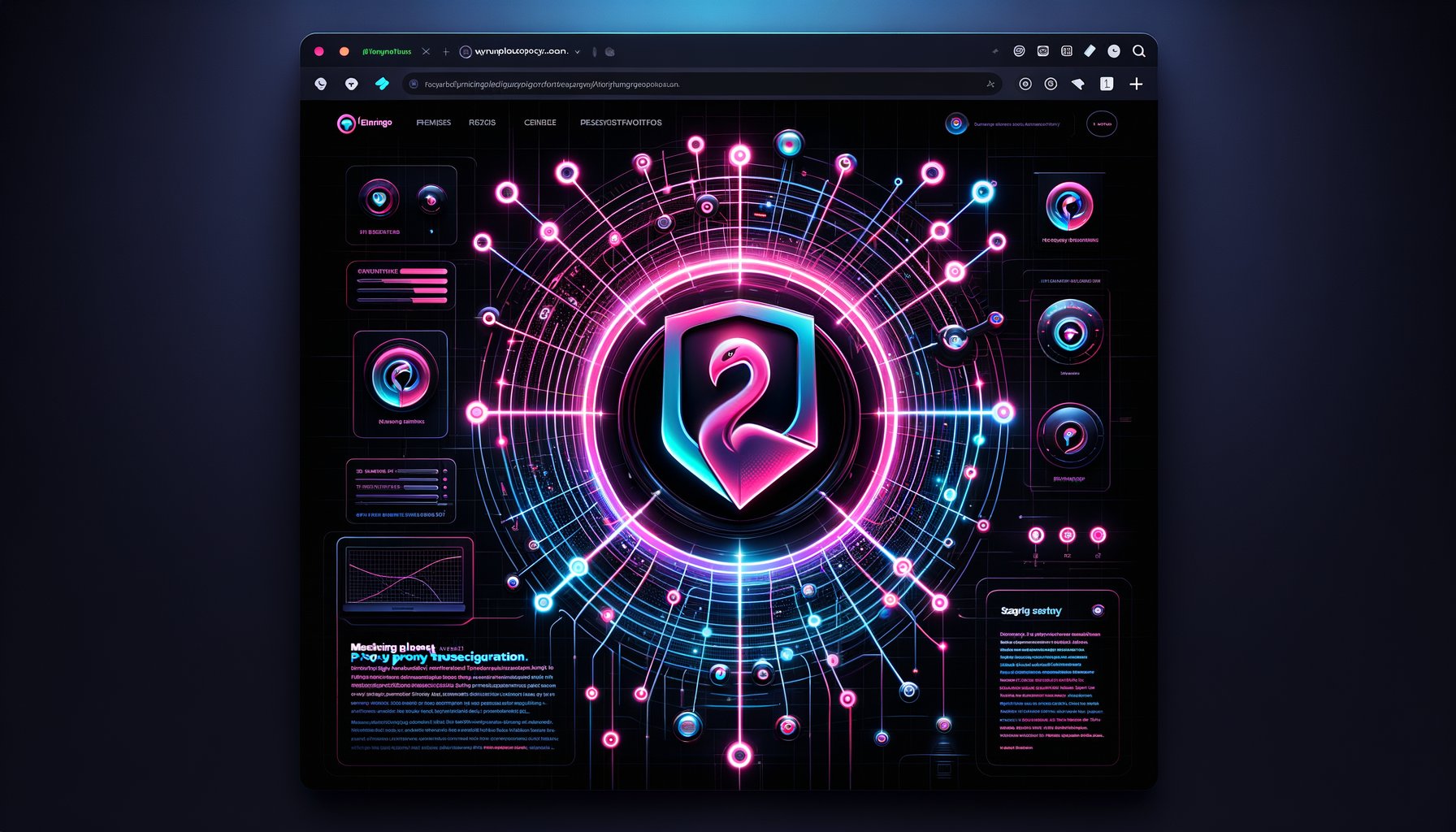Scrapy is a powerful, open-source web crawling framework for Python, ideal for everything from data mining to automated testing. However, when scraping at scale, you inevitably encounter challenges like IP bans, rate limiting, and geo-restrictions. This is where rotating proxies become indispensable, allowing you to bypass these hurdles and collect data efficiently and reliably.
This tutorial will guide you through the process of integrating rotating proxies into your Scrapy projects, ensuring your web scraping operations remain smooth and undetected. We'll leverage the robust, high-performance proxies from FlamingoProxies to demonstrate best practices.
Why Rotating Proxies Are Crucial for Scrapy
Imagine your Scrapy spider making thousands of requests from a single IP address. Websites quickly detect this as suspicious activity and will likely block your IP, rendering your scraper useless. Rotating proxies solve this problem by assigning a different IP address for each request, or after a set number of requests, mimicking organic user behavior.
Benefits of using rotating proxies with Scrapy:
- Bypass IP Bans: Your scraper won't get blocked even if one IP gets flagged, as new IPs are constantly rotated in.
- Overcome Rate Limiting: Distribute your requests across many IPs, preventing any single IP from hitting request limits.
- Access Geo-Restricted Content: Choose proxies from specific countries to access region-locked data.
- Enhanced Anonymity: Protect your scraping identity by obscuring your original IP address.
FlamingoProxies offers Residential and ISP proxies that are perfect for Scrapy projects, providing unparalleled speed, reliability, and a vast pool of IP addresses to ensure your scraping tasks are never interrupted.
Setting Up Your Scrapy Project for Proxy Integration
Step 1: Initialize Your Scrapy Project
If you haven't already, start by creating a new Scrapy project:
scrapy startproject my_scraper_projectcd my_scraper_projectStep 2: Configure Scrapy Settings (settings.py)
Open your project's settings.py file. We need to adjust a few parameters and enable a custom middleware that will handle our proxy rotation. Make sure to comment out or remove any default proxy-related settings if they conflict.
Here are the essential settings:
# Disable default Scrapy user agent to prevent easy detectionUSER_AGENT = 'Mozilla/5.0 (Windows NT 10.0; Win64; x64) AppleWebKit/537.36 (KHTML, like Gecko) Chrome/91.0.4472.124 Safari/537.36' # Use a common browser user agent# Enable and configure a download delay to be polite and avoid detectionDOWNLOAD_DELAY = 1 # 1 second delay between requests to the same domainCONCURRENT_REQUESTS = 16 # Maximum concurrent requests you can handle. Adjust based on proxy plan.AUTOTHROTTLE_ENABLED = TrueAUTOTHROTTLE_START_DELAY = 1AUTOTHROTTLE_MAX_DELAY = 60AUTOTHROTTLE_TARGET_CONCURRENCY = 8AUTOTHROTTLE_DEBUG = False# Set a higher retry count for failed requestsRETRY_TIMES = 10RETRY_HTTP_CODES = [500, 502, 503, 504, 400, 403, 404, 408, 429] # Common error codes# Enable the custom proxy middlewareDOWNLOADER_MIDDLEWARES = { 'my_scraper_project.middlewares.ProxyMiddleware': 400, 'scrapy.downloadermiddlewares.httpproxy.HttpProxyMiddleware': None # Disable default if it interferes}Step 3: Implement a Custom Proxy Middleware
Create a new file named middlewares.py inside your `my_scraper_project` directory (the one containing `settings.py`). This middleware will intercept requests and assign a proxy from your FlamingoProxies pool.
For FlamingoProxies, you'll typically use a single gateway endpoint for rotating proxies. Replace `YOUR_USERNAME`, `YOUR_PASSWORD`, and `YOUR_GATEWAY_ENDPOINT` with your actual FlamingoProxies credentials and the provided gateway.
import base64class ProxyMiddleware(object): # Replace with your FlamingoProxies credentials PROXY_URL = 'http://YOUR_GATEWAY_ENDPOINT:PORT' # E.g., gateway.flamingoproxies.com:20000 PROXY_USER = 'YOUR_USERNAME' PROXY_PASS = 'YOUR_PASSWORD' def process_request(self, request, spider): request.meta['proxy'] = self.PROXY_URL # If authentication is required if self.PROXY_USER and self.PROXY_PASS: auth = f'{self.PROXY_USER}:{self.PROXY_PASS}' encoded_auth = base64.b64encode(auth.encode()).decode() request.headers['Proxy-Authorization'] = f'Basic {encoded_auth}'FlamingoProxies' network spans globally, offering millions of IPs across various locations. This vast pool ensures you can always find the right IP for your scraping needs, maintaining high success rates.
Step 4: Activating Your Proxy Middleware
Ensure that in your settings.py, you have correctly pointed to your custom middleware. The line should look like this:
DOWNLOADER_MIDDLEWARES = { 'my_scraper_project.middlewares.ProxyMiddleware': 400, 'scrapy.downloadermiddlewares.httpproxy.HttpProxyMiddleware': None # Disable default}Step 5: Testing Your Scrapy Spider with Rotating Proxies
Now, let's create a simple spider to verify that your proxies are working. Create a file like `test_spider.py` in your `spiders` directory:
import scrapyclass TestProxySpider(scrapy.Spider): name = 'test_proxy' start_urls = ['http://httpbin.org/ip'] # A service that shows your request's IP def parse(self, response): # This will show the IP address detected by httpbin.org # If it's a proxy IP, your setup is working! yield {'ip': response.json()['origin']}Run your spider from the project's root directory:
scrapy crawl test_proxyThe output should show an IP address that belongs to your FlamingoProxies pool, rather than your local machine's IP. If it does, congratulations – your rotating proxies are successfully integrated!
Best Practices for Scrapy and Rotating Proxies
- Choose High-Quality Proxies: Not all proxies are created equal. Use reliable Residential or ISP proxies from providers like FlamingoProxies for the best performance and stealth.
- Adjust Download Delay: While proxies help, always be mindful of the target website's politeness. Adjust `DOWNLOAD_DELAY` and use `AUTOTHROTTLE` for a more adaptive approach.
- Handle Retries Gracefully: Configure `RETRY_TIMES` and `RETRY_HTTP_CODES` in your `settings.py` to automatically retry requests that fail, which can happen even with the best proxies.
- Monitor Your Scraping: Keep an eye on your Scrapy logs. Errors like `403 Forbidden` or `429 Too Many Requests` might indicate that your proxy rotation isn't aggressive enough, or that your proxies are being detected.
FlamingoProxies ensures your scraping activities are backed by a robust and constantly refreshed pool of IPs, minimizing downtime and maximizing data collection efficiency. Our proxies are built for speed and reliability, critical for demanding Scrapy tasks.
Conclusion: Power Up Your Scrapy Projects with FlamingoProxies
Integrating rotating proxies with Scrapy is a fundamental step towards building resilient and scalable web scrapers. By following this guide and utilizing FlamingoProxies' premium Residential or ISP proxies, you can bypass common scraping obstacles, ensuring your data collection efforts are always successful.
Ready to elevate your web scraping game? Explore our flexible FlamingoProxies plans today and experience the difference that high-quality, rotating proxies can make for your Scrapy projects!





